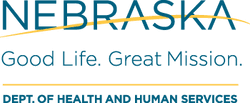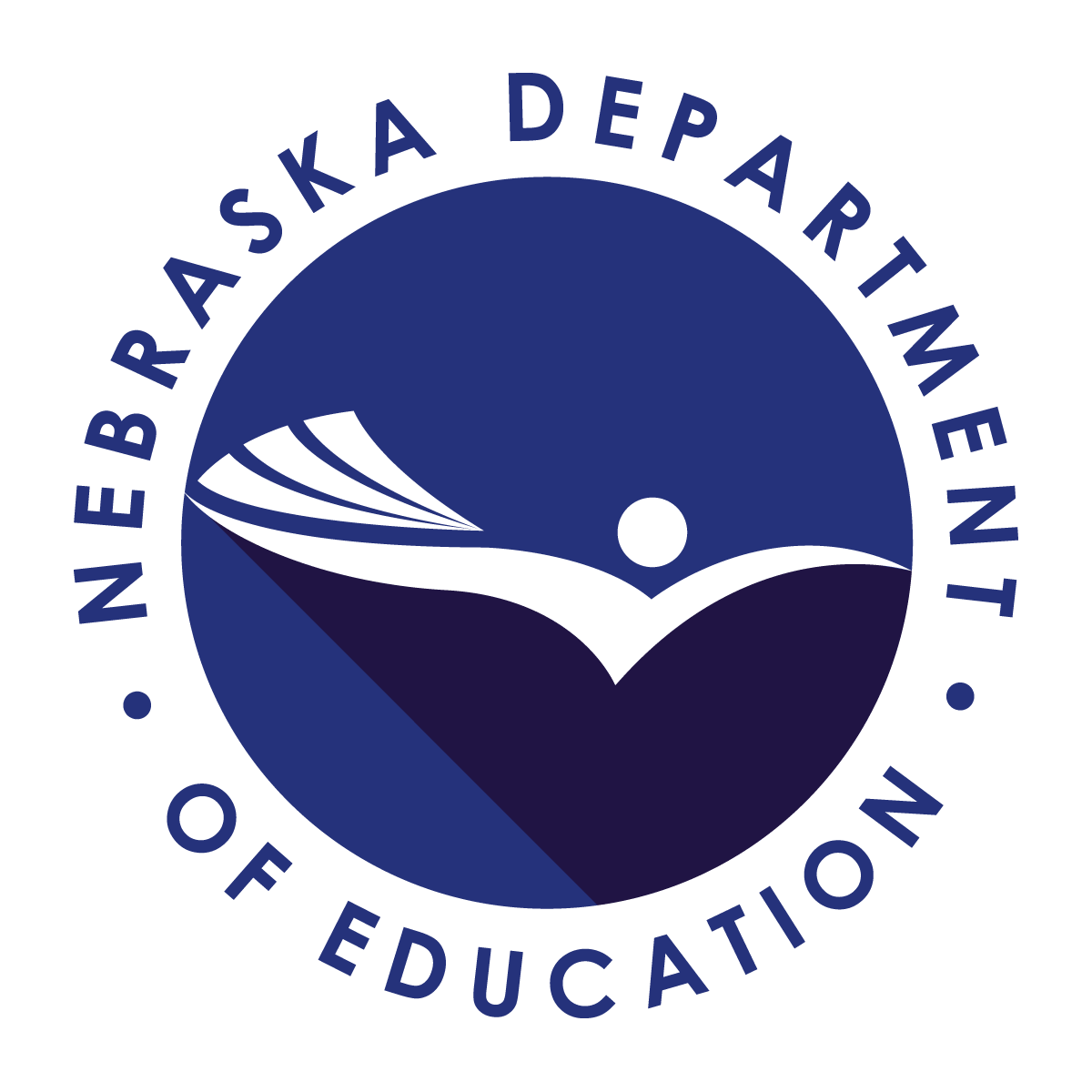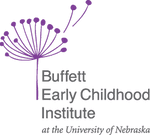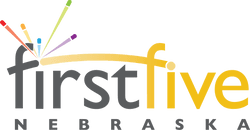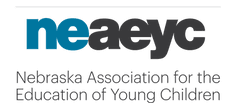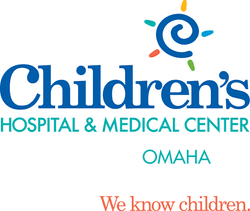Over the period Nebraska has received funding, the Preschool Development Grant has funded over 30 initiatives sponsored by 11 organizations. You can find brief descriptions of most of the initiatives below.
Project Management: Nebraska Children and Families Foundation
- Facilitates Program Management Team and Nebraska Leadership Team.
Needs Assessment: Buffett Early Childhood Institute
- Maintains an ongoing assessment of gaps in the early childhood system to inform the state’s strategic plan. Learn More.
Strategic Plan: Buffett Early Childhood Institute
- Shapes a statewide plan to address gaps in early childhood system, seeks to expand reach of the plan, and identifies indicators of plan progress. Learn More.
Learning Begins at Birth: First Five Nebraska
- Produces, in multiple languages, a revised resource for families about child development, social emotional interactions, and quality childcare, and broadens its statewide distribution. Learn More.
Child Care Essentials: University of Nebraska-Extension
- Revises the existing "The Right Place" brochure into “Childcare Essentials”: Choosing quality childcare in Nebraska,” which offers information on quality childcare and how to find it. Learn More.
Nebraska Childcare Referral Network: Nebraska Children and Families Foundation
- Provides up-to-date information for parents about which licensed childcare providers are open and what their available capacity is by age group. Learn More.
Getting Ready: University of Nebraska--Nebraska Center for Research on Children, Youth, Families and Schools
- Encourages interaction among children, their families, and early childhood professionals to promote warmth, sensitivity, and active participation to support children’s early learning and kindergarten readiness. Learn More.
Ready Rosie: Nebraska Children and Families Foundation
- Offers over a 1,000 “Modeled Moment” English and Spanish videos to families via text, email, and a website, letting educators target specific skills and individualize the videos to be shared with families. Learn More.
Nebraska Early Childhood Campaign: Buffett Early Childhood Institute
- Provides for a statewide early childhood campaign that builds support for quality early childhood care and education for all families in Nebraska to help ensure that children and their families can access quality early childhood services to support healthy development from birth through age 8. Learn More.
Coordinated Enrollment: Nebraska Early Childhood Collaborative
- Provides coordinated application, eligibility, and enrollment for high-quality early learning centers serving at-risk infants and toddlers through an Early Head Start-Child Care partnership. Learn More.
Help Me Grow: Children's Hospital and Medical Center
- Links expectant mothers and children 0-5 with essential health, developmental, and social-emotional services and provides a centralized point of communication to better connect families to needed services. Learn More.
Ready Rosie Expansion: National Center for Family Literacy and Nebraska Department of Education
- Expands the Ready Rosie video program to add to school districts and Head Starts to enhance meaningful family engagement opportunities. Learn More.
Workforce Commission: Buffett Early Childhood Institute
- Builds on existing relationships and efforts statewide to implement an infrastructure to support elevation of early childhood professionals to a priority profession offering better wages, benefits, and training. Learn More.
Coaching Collaboration: Nebraska Department of Education
- Provides a multiagency coaching coordination effort of Coach Consultants who offer coach training, reflective practice, and technical assistance to Nebraska providers. Learn More.
Step Up to Quality: Nebraska Department of Education
- Implements revisions to the tiered system of early childhood provider business training that assists owners in building high quality childcare services. Learn More.
Nebraska Center on Reflective Practice: University of Nebraska Center on Children, Families, and the Law
- Expands availability of this resource for the early childhood workforce that develops the supports and builds the reflective capacity of providers so they can be successful in an emotionally intrusive field. Learn More.
Communities for Kids--Bilingual Consultants: Nebraska Children and Families Foundation
- Partners with communities with high Spanish-speaking populations to offer translated resources in early childhood development, business practices in family home childcare, and understanding licensing regulations. Learn More.
Social Emotional Support: Nebraska Children and Families Foundation
- Provides technical assistance to enhance social emotional development of young children with families and early childhood providers, and identifies community needs for services and training. Learn More.
Circle of Security Parenting Expansion: Nebraska Children and Families Foundation
- Expands access to Circle of Security Parenting Classroom supporting early childhood providers with guidance on how to promote secure attachment relationships with the children in their care. Learn More.
Advancement of Infant Mental Health: Nebraska Children and Families Foundation
- Expands the support and professionalization of the field of early childhood mental health across Nebraska by offering professionals an opportunity to apply for an infant mental health certificate. Learn More.
Cultivating Healthy Intentional Mindful Educators (CHIME): University of Nebraska-Extension
- Expands access to the Cultivating Healthy Intentional Mindful Educators program to support and enhance the well-being of early childhood professionals through classes on how to incorporate mindfulness and reflective practice into daily routines, teaching, and caregiving. Learn More.
All Our Kin: Nebraska Early Childhood Collaborative
- Expands availability of a nationally recognized training model including training on business practices for family childcare providers to sustain operations, maintain necessary licenses, and focus on teaching and learning. Learn More.
Wonderschool: Nebraska Early Childhood Collaborative
- Offers a business platform that helps providers professionalize via a website template and functions that set their rates, market their program, bill and collect, and communicate with parents. Learn More.
Communities for Kids--Subgrants: Nebraska Children and Families Foundation
- Assists communities in developing a collaborative infrastructure for early childhood systems, including local coordination staff who assist in engaging stakeholders and leaders, using data for planning, and connecting to resources. Learn More.
ECIDS: Nebraska Department of Education
- Plans, develops, and implements an expanded data system for information on early childhood care and education that can be utilized to understand Nebraska’s needs and to measure outcomes of initiatives. Learn More.
Shared Leadership and Financing: First Five Nebraska
- The goal is to achieve a fully funded and aligned system to ensure access to full day, year-round, high-quality early care and education for children regardless of the setting and experiences parents choose. Learn More.
Performance Evaluation: Buffett Early Childhood Institute
- Tracks data from evaluations of grant-funded initiatives to offer system improvement recommendations and support for early childhood care and education while building statewide capacity for evaluation. Learn More.
Transitions Committee: Nebraska Department of Education and Buffett Early Childhood Institute
- Increases parent and provider understanding of transition processes, strengthens collaboration among early childhood providers and public schools, builds knowledge among professionals and schools, and aligns standards and curricula. Learn More.
NAESP Leadership Academy: Nebraska Department of Education
- Provides training and ongoing support to principals to support effective transitions from early childhood settings to the public education system. Learn More.


